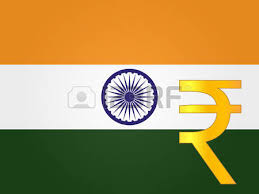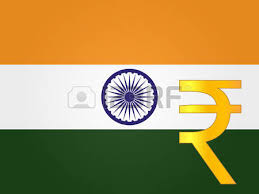
Aruna Desai can’t find a bank to exchange her funds and couldn’t give the money away if she tried and she has landed in a problem with the thousands of Indian rupees she has with her in the U.S.
Currency exchange providers in the U.S. have been unable to take the outlawed bills since Indian Prime Minister Narendra Modi removed 500- and 1,000-rupee notes from circulation. Spokesmen for the banks said that vendors have made the bills unavailable these are vendors who work with banks to provide rupees to clients and they have relations with some of the U.S.’s biggest banks, including JPMorgan Chase & Co. and Citigroup Inc.It can’t supply rupees at this time, while Bank of America Corp. said it has never accepted the currency for exchange, Wells Fargo & Co. also said.
“If you have a euro, you can go to a bank and exchange it. For an Indian rupee, I don’t think there’s any bank that does that here,” Desai, 76, of Cliffside Park, New Jersey, said in a telephone interview to Bloomberg.
Sweeping away 86 percent of the total currency in circulation, Modi said last week in a surprise announcement that five-hundred rupee ($7.34) and 1,000-rupee notes ceased to be legal tender from Nov. 9. Curbing tax evasion and recovering illegal income, locally known as black money, stashed overseas were seen is the major aim of the move by Modi who had made a promise to this effect during the election phase. Modi said that the now defunct notes will have to be deposited in banks by the end of December.
“For our clients, it’s very hard. A lot of people are affected and we don’t have a culture that is credit-card friendly, it’s a cash-based economy,” Nandita Chandra, head of Great Indian Travel Co.’s New York office, said in a telephone interview to Bloomberg while visiting New Delhi.
The move was herald as one that will reduce crime and drive growth in the Indian economy by Mastercard Inc., the second-largest payment network.
Modi’s “bold action and leadership is a critical step in positioning India to be a leader in the global cashless and digital economy movement. Mastercard is committed to working with the government to provide the cashless solutions that combat corruption and create growth, and inclusion for all members of society,” Porush Singh, the firm’s president for South Asia, said in a statement.
Lucie Smith, a spokeswoman for the London-based company Travelex Ltd., which operates more than 200 currency exchange stores in the U.S., said it’s unable to accept the 500- and 1000-rupee bills from customers because it can’t repatriate the cash in bulk under India’s current rules. For those locations facing a shortage of rupees, customers are able to receive checks or remittances to their bank accounts, Western Union Co., the world’s largest money-transfer service, said.
“A lot of people are trying to give money to their friends to spend it, or else it will go to waste,” said Desai, who makes a yearly trip to India to work at a medical camp. If she can’t find a place to exchange or use the bills, she’ll “just have to throw it away.”
(Source:www.bloomberg.com)
Currency exchange providers in the U.S. have been unable to take the outlawed bills since Indian Prime Minister Narendra Modi removed 500- and 1,000-rupee notes from circulation. Spokesmen for the banks said that vendors have made the bills unavailable these are vendors who work with banks to provide rupees to clients and they have relations with some of the U.S.’s biggest banks, including JPMorgan Chase & Co. and Citigroup Inc.It can’t supply rupees at this time, while Bank of America Corp. said it has never accepted the currency for exchange, Wells Fargo & Co. also said.
“If you have a euro, you can go to a bank and exchange it. For an Indian rupee, I don’t think there’s any bank that does that here,” Desai, 76, of Cliffside Park, New Jersey, said in a telephone interview to Bloomberg.
Sweeping away 86 percent of the total currency in circulation, Modi said last week in a surprise announcement that five-hundred rupee ($7.34) and 1,000-rupee notes ceased to be legal tender from Nov. 9. Curbing tax evasion and recovering illegal income, locally known as black money, stashed overseas were seen is the major aim of the move by Modi who had made a promise to this effect during the election phase. Modi said that the now defunct notes will have to be deposited in banks by the end of December.
“For our clients, it’s very hard. A lot of people are affected and we don’t have a culture that is credit-card friendly, it’s a cash-based economy,” Nandita Chandra, head of Great Indian Travel Co.’s New York office, said in a telephone interview to Bloomberg while visiting New Delhi.
The move was herald as one that will reduce crime and drive growth in the Indian economy by Mastercard Inc., the second-largest payment network.
Modi’s “bold action and leadership is a critical step in positioning India to be a leader in the global cashless and digital economy movement. Mastercard is committed to working with the government to provide the cashless solutions that combat corruption and create growth, and inclusion for all members of society,” Porush Singh, the firm’s president for South Asia, said in a statement.
Lucie Smith, a spokeswoman for the London-based company Travelex Ltd., which operates more than 200 currency exchange stores in the U.S., said it’s unable to accept the 500- and 1000-rupee bills from customers because it can’t repatriate the cash in bulk under India’s current rules. For those locations facing a shortage of rupees, customers are able to receive checks or remittances to their bank accounts, Western Union Co., the world’s largest money-transfer service, said.
“A lot of people are trying to give money to their friends to spend it, or else it will go to waste,” said Desai, who makes a yearly trip to India to work at a medical camp. If she can’t find a place to exchange or use the bills, she’ll “just have to throw it away.”
(Source:www.bloomberg.com)














